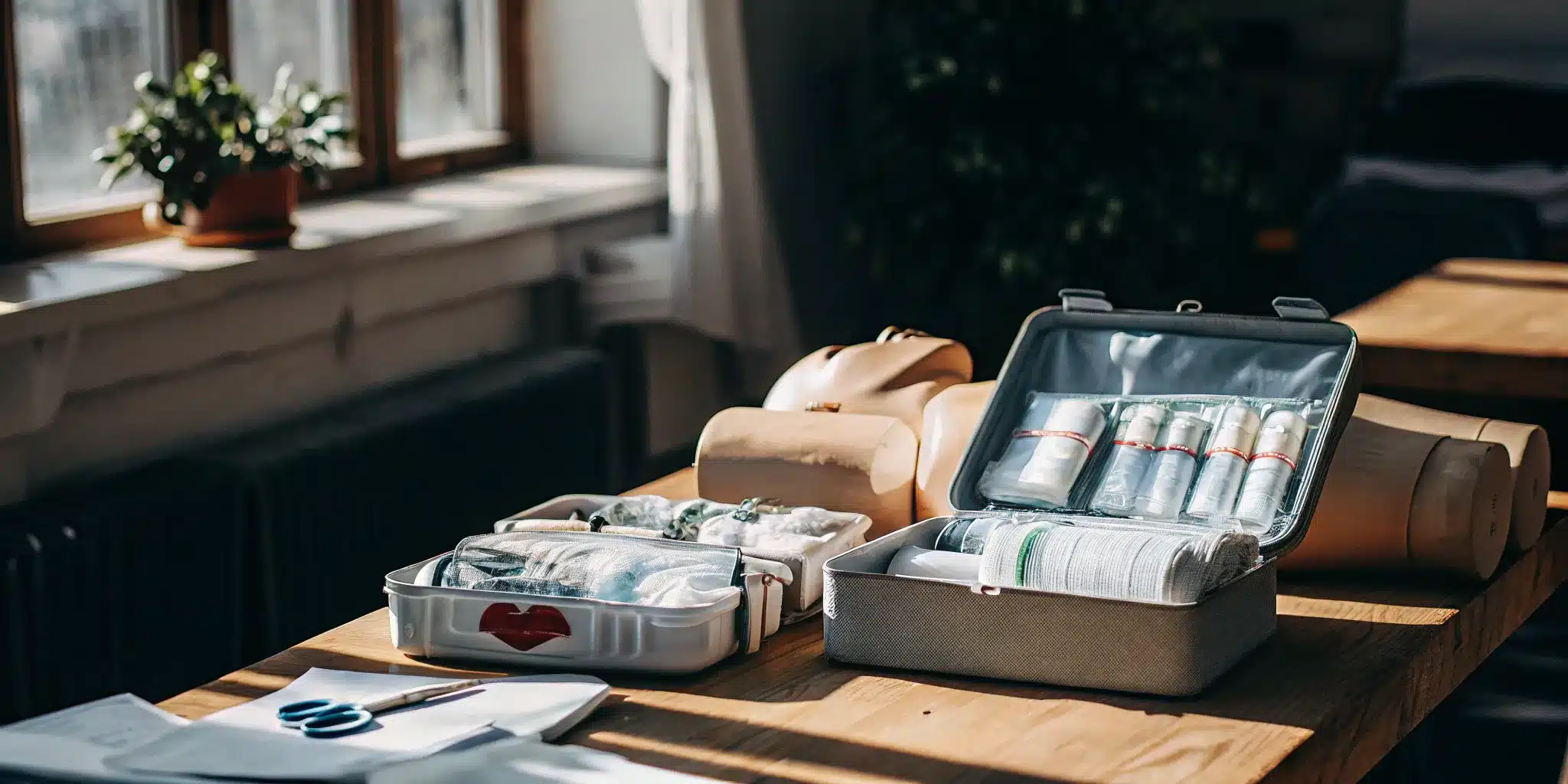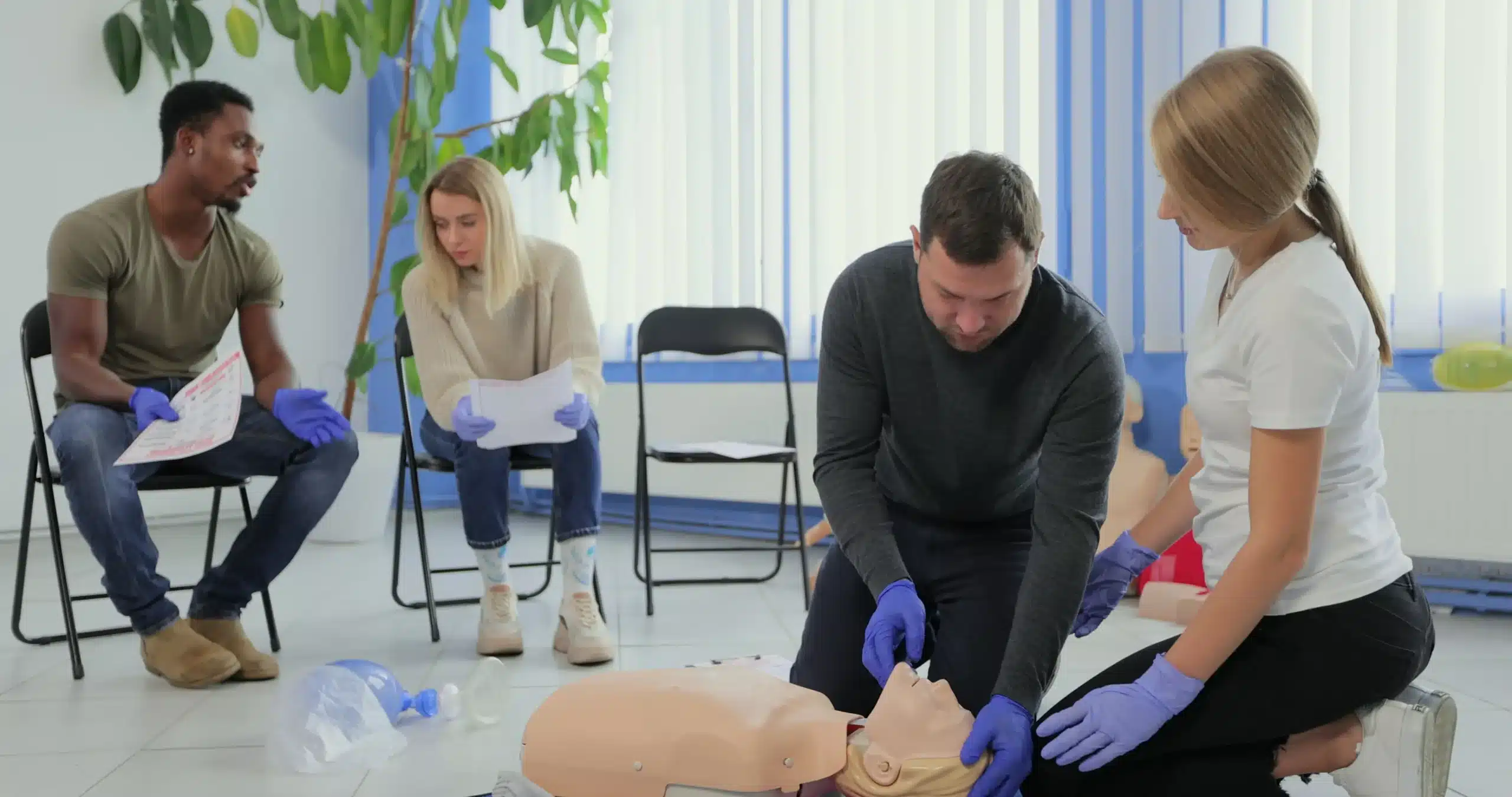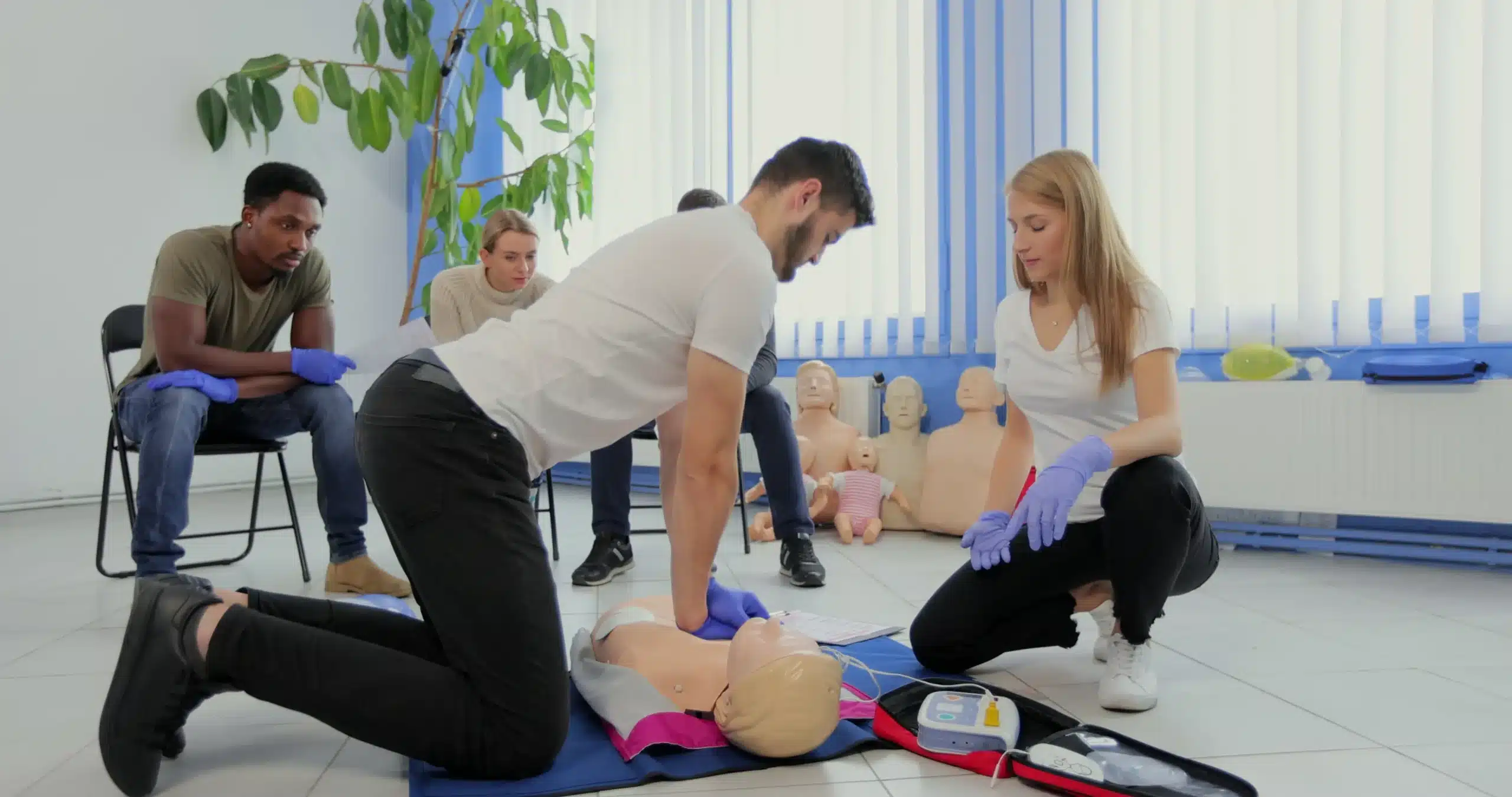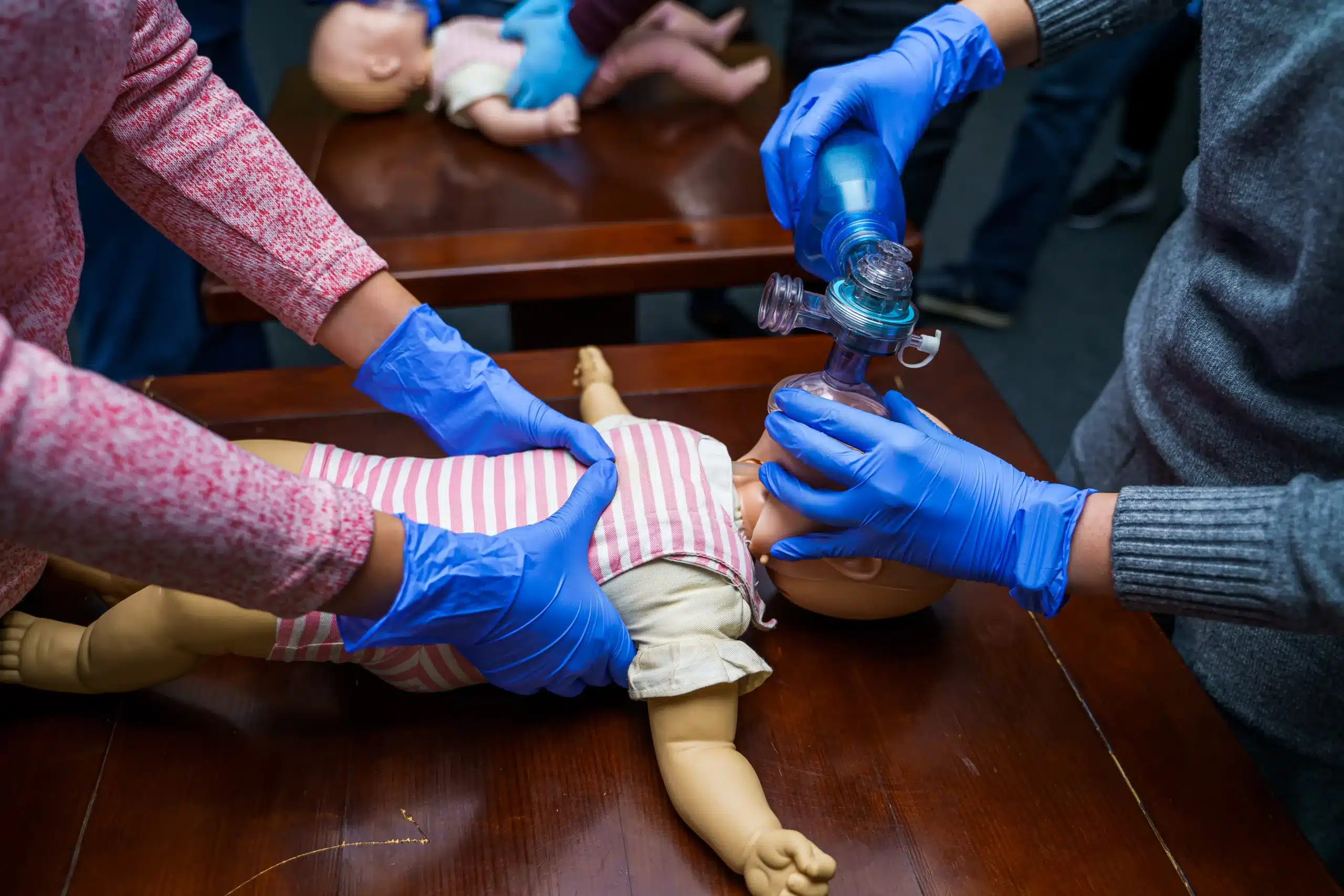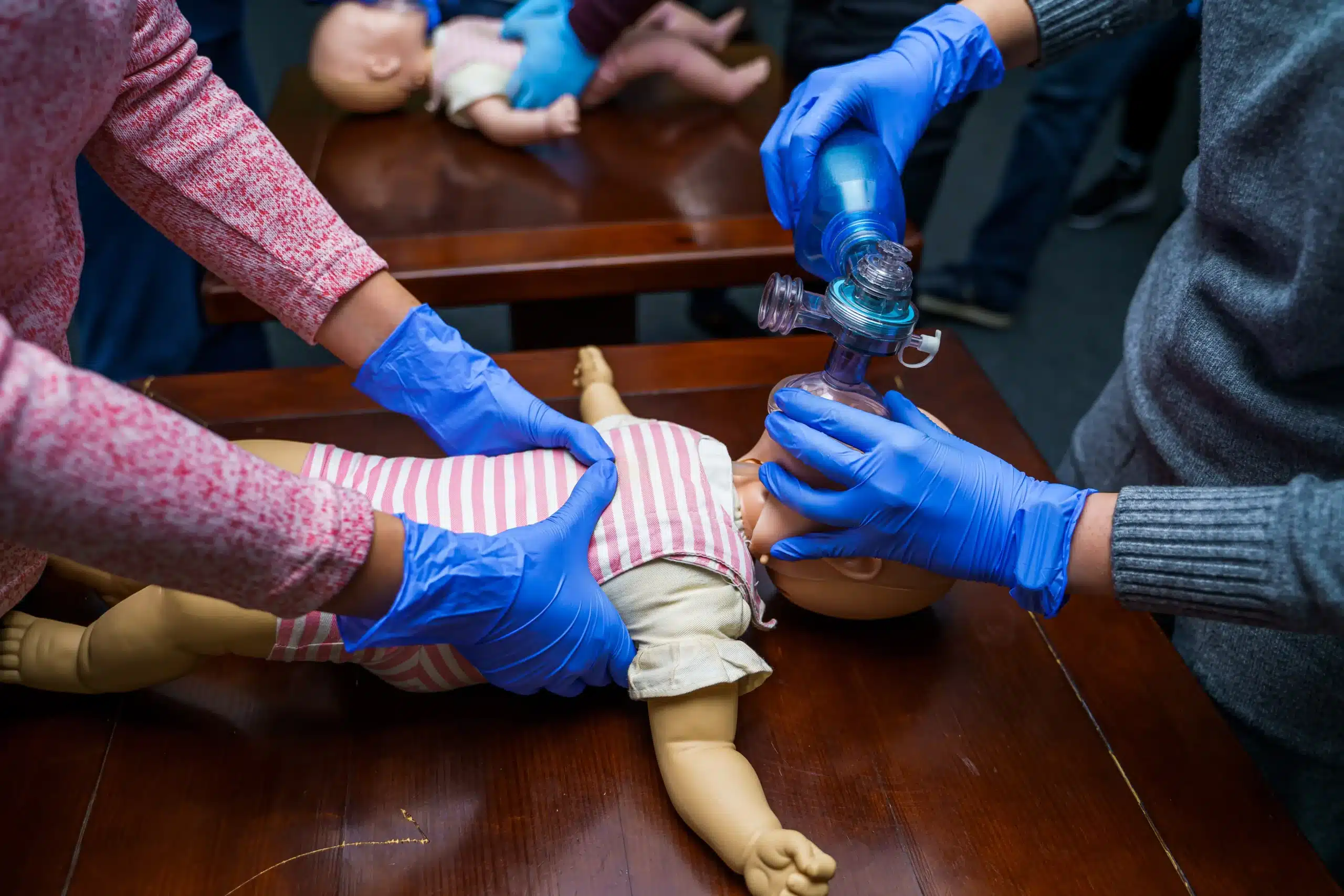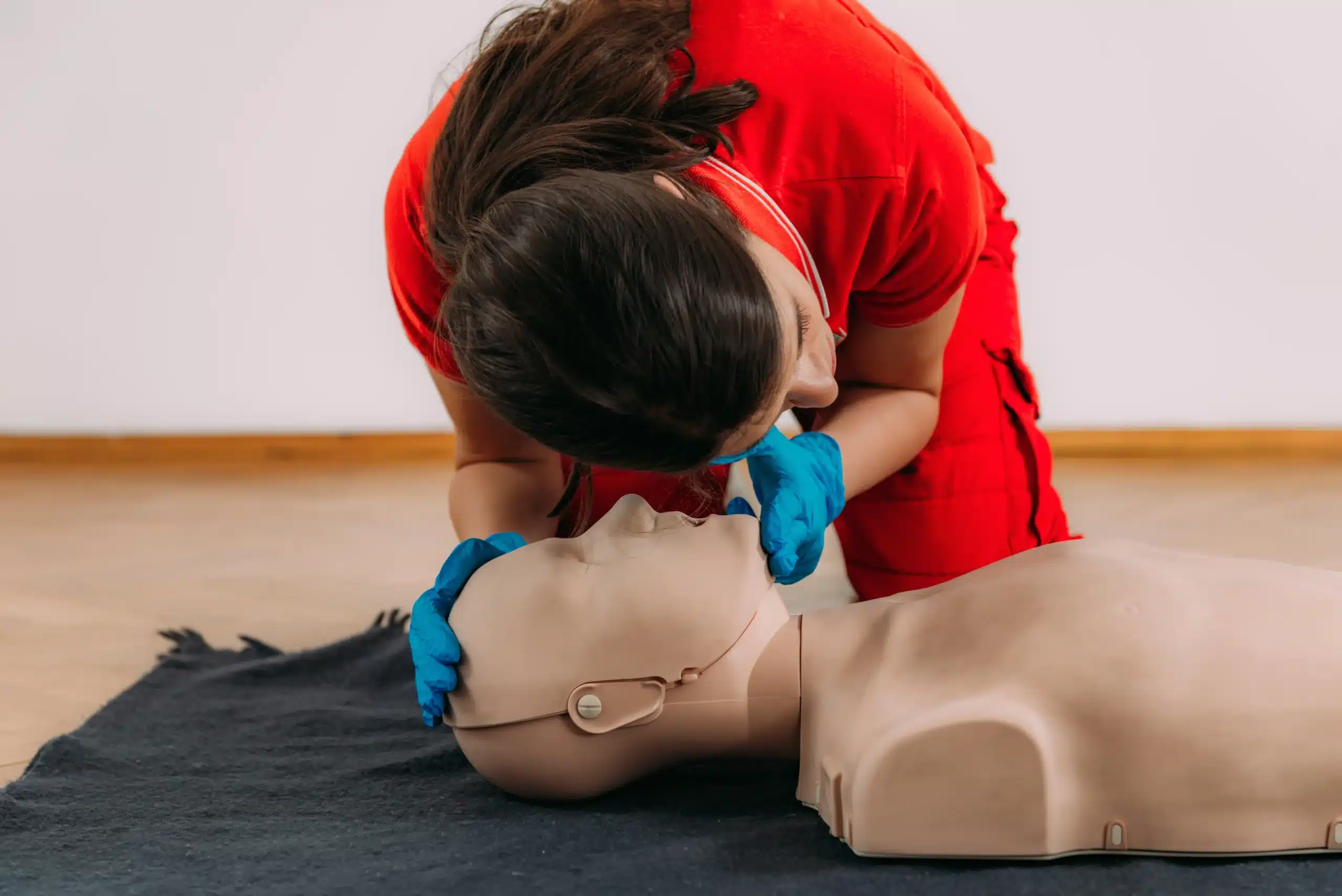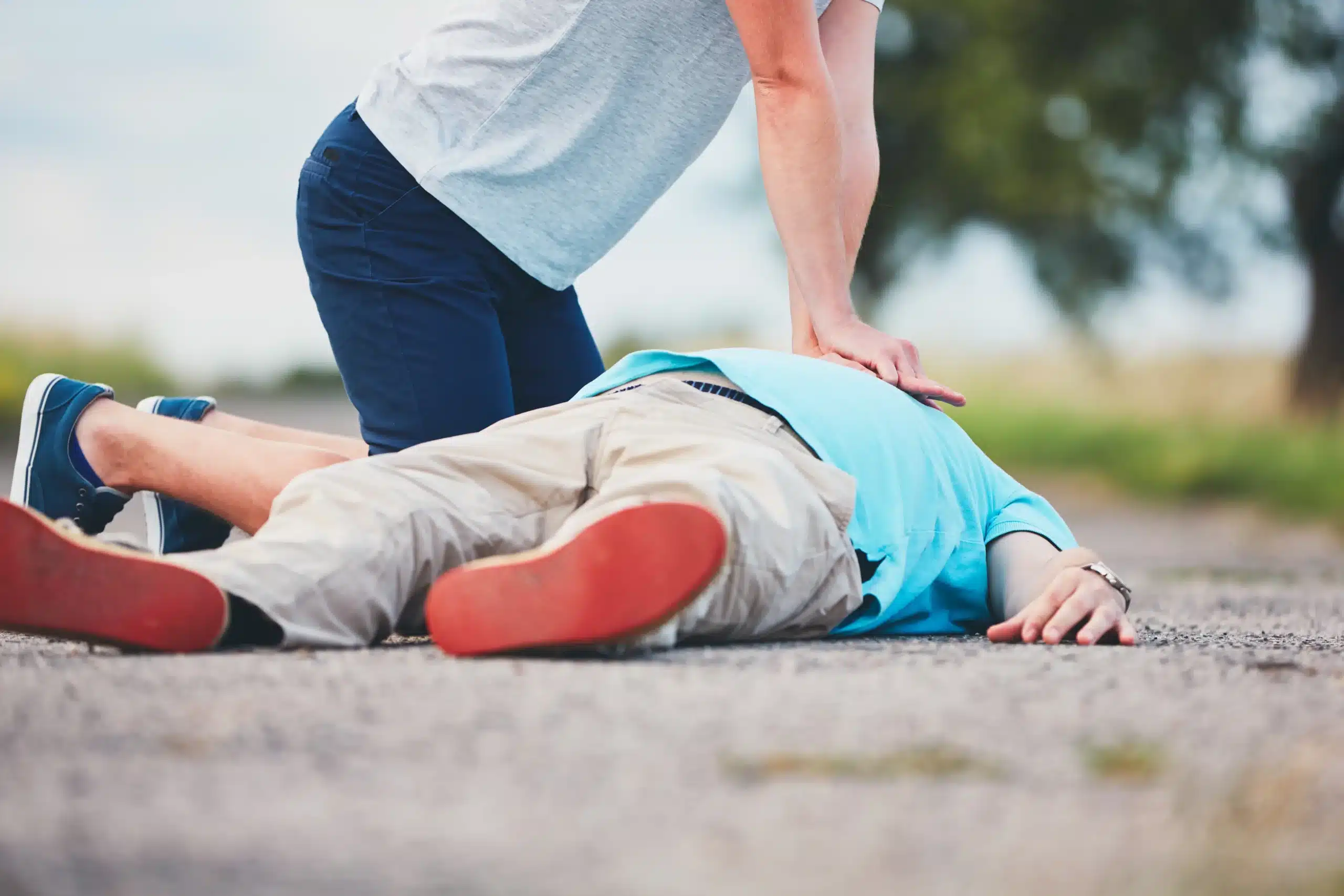Living in Atwater means being part of a vibrant community, and part of that involves looking out for one another. One of the most impactful ways to do that is by learning first-aid in Atwater. This post is your guide to understanding the importance of first-aid training, finding the right course for your needs, and becoming a more prepared and confident resident. We’ll explore the various first-aid certifications available locally, discuss the skills you’ll learn, and address common concerns about getting started. Whether you’re a parent, a caregiver, a teacher, or simply someone who wants to be prepared for anything, this guide will empower you to make a difference in your community.
Key Takeaways
- First aid training empowers you to handle emergencies. Find the right course for your needs, from basic CPR and first aid to advanced certifications like BLS and ACLS.
- Atwater has accessible resources for first aid training and supplies. Explore local providers like Merced CPR Classes and Atwater Community Hospital, and check nearby pharmacies for essential supplies.
- Address concerns and find accessible options to overcome barriers to first aid training. Look for flexible scheduling, inclusive learning environments, and community programs.
What is First Aid? Why Atwater Residents Need It
First aid is the immediate care you give someone experiencing a sudden illness or injury. It’s about stabilizing the situation and preventing further harm until professional help arrives. Think of it as bridging the gap between the incident and the arrival of paramedics. This essential skillset is crucial for everyone, but especially for residents in communities like Atwater. Knowing what to do in those first few minutes can truly make all the difference.
Why is first aid training so important for Atwater residents specifically? Imagine a scenario: a child falls from a swing at the park, a kitchen fire starts during dinner, or someone collapses during the Atwater Farmers Market. These situations, while we hope they never happen, are possibilities. Having residents trained in first aid means more people are equipped to respond effectively, potentially minimizing injuries and even saving lives. It empowers you to take action and provide immediate support while waiting for paramedics.
Investing in first aid training isn’t just about individual preparedness; it’s about building a more resilient community. When more people have these skills, Atwater becomes a safer place for everyone. It fosters a sense of security and encourages people to look out for one another. Learn more about the impact of first aid training on community safety. It’s a valuable investment in yourself, your family, and your neighbors.
Find First Aid Training in Atwater
Finding the right first aid training can feel overwhelming, but it doesn’t have to be. This section breaks down where to find quality first aid instruction in Atwater and nearby areas.
AHA-Certified Courses
For nationally recognized certification, look for American Heart Association (AHA) certified courses. These courses meet rigorous standards and are widely accepted. Safety Training Seminars offers a comprehensive selection of AHA courses, including BLS, ACLS, PALS, CPR, and First Aid. They provide training in Merced and conveniently offer classes throughout the week in nearby locations, making high-quality, certified training accessible for Atwater residents.
Local Training Providers
Several local providers offer first aid and CPR training in and around Atwater. Here are a couple of options:
Merced CPR Classes
Merced CPR Classes offers a variety of CPR and first aid certification courses. They are a valuable resource for individuals and groups in Merced and surrounding communities, contributing to a more prepared and responsive community. Check their website for course schedules and registration information.
Atwater Community Hospital Training Center
Atwater Community Hospital offers various CPR and first aid courses for both healthcare professionals and the public. They typically offer BLS (Basic Life Support), ACLS (Advanced Cardiac Life Support), and PALS (Pediatric Advanced Life Support) for healthcare providers, as well as Heartsaver First Aid CPR AED training for community members. Contact the hospital directly for the most up-to-date information on their courses.
First Aid Courses & Skills You’ll Learn
Knowing which first aid course best suits your needs helps narrow your search. Here’s a rundown of common courses offered in and around Atwater, including those available through our friends at Merced CPR Classes:
Basic Life Support (BLS)
BLS certification focuses on providing high-quality CPR for adults, children, and infants. You’ll learn single-rescuer and team-based CPR techniques, along with how to use an automated external defibrillator (AED). BLS classes also cover relief of choking. This course is critical for healthcare providers and anyone working in a higher-risk environment. AHA-aligned BLS courses equip participants with the latest protocols.
Advanced Cardiac Life Support (ACLS)
ACLS training builds upon BLS skills, covering advanced life support techniques for adults. This course addresses a broader range of cardiovascular emergencies and emphasizes effective team dynamics during resuscitation. Expect to practice ECG rhythm recognition, airway management, and pharmacological interventions. ACLS certification is primarily for healthcare professionals. Check with providers like First Lady Permanente for local ACLS courses.
Pediatric Advanced Life Support (PALS)
Similar to ACLS, PALS focuses on providing advanced life support to infants and children. The course covers pediatric-specific emergencies, including respiratory distress, shock, and cardiac arrest. PALS training emphasizes rapid assessment, effective interventions, and team coordination. This certification is typically for healthcare providers working with children. First Lady Permanente is one local resource for PALS certification.
Heartsaver First Aid CPR AED
This comprehensive course combines first aid, CPR, and AED training. You’ll learn how to respond to various medical emergencies, from bleeding and burns to choking and sudden cardiac arrest. The Heartsaver course is suitable for anyone wanting to develop essential life-saving skills, including teachers, coaches, and community members. Find local CPR and first aid classes that offer this combined certification.
CPR & First Aid Certification
If you’re looking for a flexible option, combined CPR and first aid certification courses are available. These courses cover the fundamentals of both disciplines, providing a solid foundation for responding to emergencies. They are a great option for those seeking basic life support knowledge and skills. Merced CPR Classes offers combined courses that include online learning and in-person skills testing, with pricing around $140.
Check Trainer Qualifications & Certifications
Before you sign up for a first aid course, it’s smart to do your homework. Checking the qualifications and certifications of both the instructors and the training center ensures you’re learning the most up-to-date, evidence-based practices. This due diligence can make a real difference in the quality of your training.
Instructor Credentials
Look for instructors certified by nationally recognized organizations like the American Heart Association (AHA). AHA-certified instructors complete rigorous training and testing, demonstrating their knowledge of current first aid and CPR guidelines. Merced CPR Classes, for example, is a recognized AHA Training Center, meaning their instructors meet these high standards. Knowing your instructor’s background gives you confidence in the quality of the training.
Facility Standards
The training facility itself matters too. Check if the facility adheres to guidelines set by organizations like the AHA. These standards often cover equipment, safety protocols, and the overall learning environment. A well-equipped and organized facility can significantly impact your learning. For instance, the BLS CPR classes offered through Merced CPR Classes include training on AEDs (automated external defibrillators) and follow updated AHA protocols, ensuring a comprehensive learning experience.
Ongoing Education Requirements
First aid and CPR techniques evolve as medical knowledge advances. Instructors need to stay current with these changes. Ask training providers about their commitment to continuing education. Programs like the AHA’s Resuscitation Quality Improvement (RQI) program ensure that healthcare providers maintain their skills and knowledge. This dedication to ongoing learning benefits you directly, ensuring you receive the most current and effective training.
Enroll in First Aid Training: Costs & How-To
Ready to get started with First Aid training? This section breaks down the enrollment process, explores scheduling options, and gives you a clear picture of the costs involved.
Sign Up for Courses
Finding the right First Aid course in Atwater is easier than you think. Start by checking out established providers like the American Red Cross and the American Heart Association for nationally recognized programs. They often hold classes locally. For a convenient option closer to home, consider Merced CPR Classes, serving Atwater and surrounding areas.
Course Schedules & Flexibility
Balancing your schedule with training is often a concern. Many providers, like Safety Training Seminars, offer weekday and weekend classes to provide more choices. Some even offer on-site training sessions for added convenience. Check with your chosen provider about specific schedules and on-site options.
Course Costs
While costs vary, a comprehensive First Aid course is typically around $140. This usually covers the training, online resources, skills testing, and your certification card. Always confirm pricing and any potential discounts with the provider. Merced CPR Classes offers a low price guarantee and is a good resource for comparing costs.
Online vs. In-Person Training
If you need flexibility, consider a blended learning approach. The American Heart Association’s RQI program combines online learning with in-person skills sessions. This allows you to learn at your own pace and then demonstrate your skills practically. This format is especially helpful for busy healthcare professionals maintaining certifications. Contact Merced CPR Classes for more information on available online and in-person options.
What Happens in Atwater First Aid Courses?
Curious about what your Atwater first aid training will entail? These courses combine theory with hands-on learning to get you ready for real-life emergencies. Let’s take a closer look:
Hands-on Practice
Atwater first aid courses emphasize hands-on learning. You’ll actively participate in simulated scenarios, practicing essential skills like CPR, wound care, and applying splints. This practical experience builds confidence and reinforces the techniques you learn, ensuring you can respond effectively in a crisis. You’ll work with training equipment and realistic mannequins, providing a safe environment to learn from your mistakes. This immersive approach solidifies your understanding and prepares you to act quickly and calmly under pressure.
Get Certified
After successfully completing your first aid course, you’ll earn a nationally recognized certification from the American Heart Association. This certification validates your skills and knowledge, proving your ability to administer effective first aid. It’s a valuable credential, whether for personal preparedness or professional requirements. Keep your certification information handy, as you might need it for certain jobs or volunteer opportunities.
Recertification
First aid guidelines and best practices change. To stay up-to-date and maintain your certification, plan to attend a recertification course every two years. This refresher keeps your skills sharp and ensures you’re current on the latest protocols. Recertification reinforces your existing knowledge and introduces any new advancements in first aid techniques. It’s a commitment to maintaining your competence and providing the best possible care during an emergency.
More Atwater First Aid Resources
Knowing how to administer first aid is essential, but having the right supplies on hand is equally important. Whether you’re restocking your home kit or building one for your car, Atwater has several options for purchasing first aid essentials.
Buy First Aid Supplies
Local Pharmacies
Your neighborhood pharmacy is a convenient resource for picking up first aid supplies. They typically stock a variety of bandages, antiseptic wipes, gauze, pain relievers, and other necessities. It’s a good idea to regularly check your kit and replace any depleted items.
Retail Stores
Larger retail stores often offer a wider selection of first aid products, including pre-assembled kits and specialized supplies. Whether you need a basic kit for minor injuries or a more comprehensive one for emergencies, you can likely find what you need from these retailers. Some stores even offer kits designed for specific activities like camping or hiking.
Emergency Services
Beyond equipping yourself with first aid knowledge and supplies, it’s helpful to be aware of the local emergency resources available in Atwater. Familiarize yourself with the contact information for emergency medical services and consider supporting local volunteer organizations that contribute to community safety and preparedness. These groups often offer training and disaster drills, further strengthening Atwater’s ability to respond effectively to emergencies.
First Aid Training’s Impact on Atwater
First aid training goes beyond simply learning skills; it empowers individuals and strengthens the entire Atwater community. From personal preparedness to workplace safety and a more resilient community, the positive impact is significant.
Prepare Yourself
First aid training equips you with the confidence and skills to handle emergencies effectively. Knowing how to respond in a crisis—whether it’s a minor injury or a life-threatening situation—can make a real difference. This personal preparedness brings peace of mind, knowing you can act quickly and decisively when needed. This self-reliance extends beyond personal safety, influencing how you approach community well-being. Investing in your own first aid training demonstrates a commitment to the safety of those around you.
Workplace Safety
First aid training is crucial for maintaining a safe and healthy work environment. Equipping employees with these skills can significantly reduce workplace incidents and improve overall safety. In Atwater, various organizations offer comprehensive CPR and First-Aid certification, including the American Red Cross and the American Heart Association. These courses empower employees to respond effectively to medical emergencies, minimizing injuries and potentially saving lives. A proactive approach to workplace safety, through first aid training, creates a more secure and productive environment.
Build Community Resilience
First aid training plays a vital role in building a more resilient Atwater community. When more people are trained, the community is better prepared to handle emergencies, large or small. This community-based approach, often involving volunteers, strengthens local networks and promotes a culture of preparedness. The International Federation of Red Cross and Red Crescent Societies emphasizes community engagement in first aid and health practices. While challenges exist in developing effective training programs, the goal is to enhance community resilience in the face of emergencies.
Choose the Right First Aid Course
Finding the right first aid course can feel overwhelming with so many options. This section breaks down how to choose a course that fits your specific needs and goals.
Assess Your Needs
Before you start searching for courses, take a moment to consider why you want first aid training. Are you required to have certification for your job? Are you a parent looking to feel more prepared for emergencies at home? Or are you interested in volunteering with a local organization? Understanding your motivation will help you choose the right course. For instance, healthcare providers in Atwater often require specific certifications like Basic Life Support (BLS), Advanced Cardiac Life Support (ACLS), or Pediatric Advanced Life Support (PALS). Others may simply want a general CPR and First Aid certification. Clearly defining your needs is the first step.
Compare Courses
Once you know what type of training you need, compare courses from different providers. Look at options in your area, like Merced CPR Classes, which offers a low price guarantee and group discounts. Consider factors like course content, schedule, and cost. Some providers, like Safety Training Seminars, offer on-site training, bringing the course to your location. If you’re a healthcare professional, check if the course aligns with the American Heart Association guidelines. Many providers, including First Lady Permanente, are AHA Training Centers. Also, think about the course format. Do you prefer in-person, hands-on learning, or the flexibility of online modules? Merced CPR Classes helps you prepare for your course regardless of the format.
Make a Decision
After comparing courses, you’re ready to make an informed decision. Review what you’ve learned and choose the course that best aligns with your needs, schedule, and budget. If you’re a healthcare provider, consider the efficiency of programs like the American Heart Association’s RQI program for maintaining your certifications. Remember, investing in first aid training is an investment in yourself and your community. It equips you with the skills and confidence to respond effectively in emergencies.
Overcome First Aid Training Barriers
Let’s be honest: learning first aid can feel intimidating. Maybe you’re worried you won’t remember what to do in a real emergency. Or perhaps scheduling a class feels like one more thing on your already full plate. These are valid concerns, and you’re not alone. Many people experience these same hesitations. The good news is that there are ways to address these barriers and make first aid training more accessible for everyone in Atwater.
Address Concerns
One of the biggest hurdles is simply knowing where to start. Do you need basic first aid or something more advanced? What kind of time commitment are you looking at? Start by clarifying your needs. Merced CPR Classes offers a variety of courses, from basic CPR to more specialized certifications like ACLS. Browse their website or give them a call—they’re happy to help you find the right fit. Knowing what to expect can ease a lot of pre-training anxieties. Check out their course preparation materials to get a head start and familiarize yourself with the process.
Accessibility & Inclusivity
First aid training should be available to everyone, regardless of their background or circumstances. Look for providers who offer flexible scheduling and consider factors like language accessibility and learning differences. Community-based programs often incorporate diverse teaching methods, using visual aids and real-life scenarios to make the information more engaging and easier to understand. This inclusive approach ensures that everyone in Atwater has the opportunity to learn these essential skills.
Community Outreach
First aid training isn’t just about individual preparedness; it’s about building a safer and more resilient community. When more people are trained, we create a network of support, ready to respond effectively in emergencies. Talk to your neighbors, friends, and family about the importance of first aid training. Consider organizing a group class through Merced CPR Classes—they offer discounts for group bookings, making it an affordable and fun way to learn together. Investing in first aid training is an investment in community safety, empowering individuals to confidently respond to emergencies and contribute to a more resilient Atwater.
Related Articles
- Why CPR and First-Aid Training is Essential at Work
- CPR Certification in Merced: Your Complete Guide – Merced CPR Classes
- Why CPR is Important in Healthcare – Merced CPR Classes
- BLS ACLS Classes in Merced CA: Your Guide – Merced CPR Classes
- CPR & First-aid Classes in Merced, CA – Merced CPR Classes
Frequently Asked Questions
What’s the difference between first aid and CPR?
First aid covers a broader range of immediate care for various injuries and illnesses, from minor cuts to burns. CPR, or Cardiopulmonary Resuscitation, is a specific technique used when someone’s heart or breathing has stopped. Think of CPR as one piece of the larger first aid puzzle.
How do I choose the right first aid course in Atwater?
Start by thinking about why you want the training. If it’s for a job, check the specific certification requirements. For general preparedness, a basic first aid and CPR course is a great starting point. Look at what local providers like Merced CPR Classes offer and compare course content, schedules, and costs to find the best fit.
I’m nervous about using my first aid skills in a real emergency. What if I freeze up?
It’s completely normal to feel that way. First aid courses use realistic scenarios and hands-on practice to build your confidence. The more you practice, the more comfortable you’ll become. Remember, any action you take is better than no action.
How much does first aid training cost, and are there any discounts?
Costs vary depending on the provider and the type of course. Expect to pay around $140 for a combined first aid and CPR course. Many providers offer discounts for groups, so check with places like Merced CPR Classes for potential savings.
How often do I need to renew my first aid certification?
Most first aid certifications are valid for two years. Staying current is important because guidelines and best practices can change. Look for recertification courses offered by your original provider or other reputable organizations.
